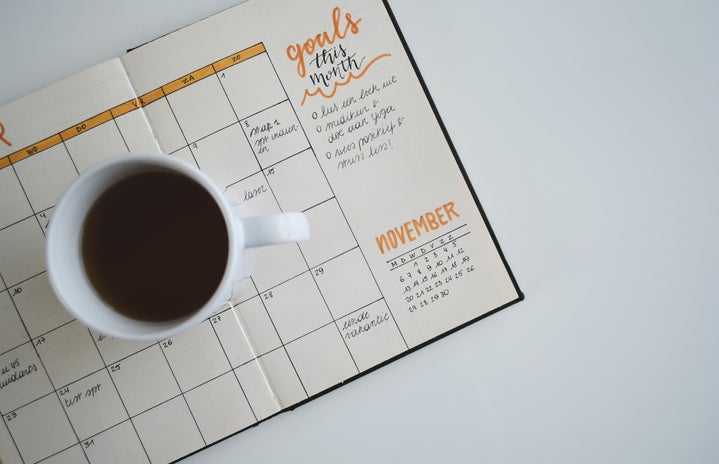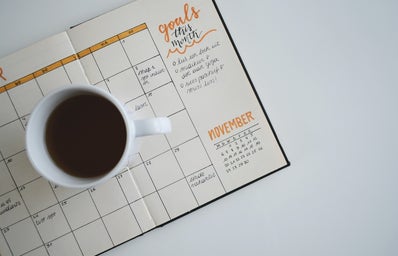If you are like me you are always looking for jobs and experience and the different ways you can get experience. Here are four simple ways to find and prepare for your dream job.
- Check Your Email
-
As a university student, you are always given an email designated to all school activities. This has you in contact not only with your peers and teachers but with your department heads as well. What no one tells you is that your department heads and teachers often send out links to your school account with job and internship opportunities that can give you valuable career experience. If I didn’t check my Ryerson email this summer I would not be writing this very article for Her Campus. If I did not check my email I would not have found out about a career website known as Magnet which allows for you to find jobs within Ryerson and in the community. Without checking my email, I would not have known about the various history internships that will be available to me in my last few years at Ryerson. Reading your emails demonstrates not only that the school wants to further your ability to find opportunities pertaining to what you study. But also demonstrates that you care about what you want your future to hold. And luckily checking your email is one of the easiest things you can do. Just remember, read the emails all the way through and check for attachments you never know what opportunities may be available!
- Use Career Websites
-
Career websites are the most important thing in the modern century job search. Workopolis, Indeed, Magnet, Ryerson Career Boost, Canadian Job Bank, the Contact Us at the end of a website with information on how to apply, are vital to the job search. You can filter to working in agriculture, labour, construction, schools, tutors, remote/virtual positions. You can filter to education requirements, and you can filter to what you study. You can search for entry-level positions and professional positions. As my eighth-grade teacher told me “The world is your oyster” I have noticed that yes the world is everyone’s oyster as long as you put a little bit of work into finding what best suits you. Apply for the job you think you might not be qualified for, apply for the job you think you are destined for, apply for the job that you think is really cool, apply for the job that you think would make you feel comfortable, apply for the job that would push you outside of your comfort zone. Use these career websites to introduce you to jobs, there are many different occupations outside of Teacher, Doctor, Police Officer, Fireman, Paramedic, and Stockbroker. Explore your opportunities, learn what is available to you, and get that experience. Building up your experience can be one of the most important things for your future, and it starts with opening up one of those career websites and searching “Jobs near me”, you might be surprised by what’s available to you.
- Revise Your Resume
-
If you are like many of the people I know, you aren’t too sure of when you last opened your resume. Remember even if you have a job at the moment you should always keep your resume updated and formal. Oftentimes by the time you need your resume again you have forgotten what the duties were in your past job. When applying to new jobs keep your job experience relevant. If you have volunteer experience from when you were 11 and you are now 22 years old with paid work experience that volunteer experience is no longer valid to your goals. It is not always necessary to keep every single job/volunteer experience on your resume, don’t be afraid to say “I am proud of this experience but I have grown out of the opportunities it can provide” and replace it with something more applicable to your current job search. Change your objectives with each job application you do. “My goal is to obtain a part-time position where I can gain valuable customer service experience” is what my first resume said, now it has changed to “My goal is to obtain a position where I can gain valuable publishing and research experience”, I have adapted and changed what I hope to achieve out of the jobs that I will potentially get. As you get older your job applications become more tailored to a specific specialty, something that your education or skill set has prepared you for. Keep everything on your resume relevant to the future you want and the goals you set for yourself. Remember, your resume is like the summary at the back of a book, if it seems interesting and fits with your interests you will read the book to learn more, just as a potential employer will see if your experience fits with the interests of the position and company and if they find that it does they will call you for an interview. And that’s where things get difficult…
- Prepare For The Interview
-
The most nerve-wracking and teeth-chattering experience is always the interview. It’s easy to send an email and attach a resume. But the interview is where you have the opportunity to show that your skills and experiences align with the job position and the company. The interview has now strayed from the traditional give me your strengths and weaknesses interview. Interviews now focus on situational factors, “what do you do if you make a mistake?” “How do you respond to feedback?” and other “how do you react to this…” questions. This does not mean that your interviewers aren’t sneaking around to find out what your weaknesses are, you just have to evaluate the question and see if they want to find out about something you have failed at, or something that you are weaker in. Self-awareness is the most important and vital trait for all employers. Recognizing that you make mistakes, does not make you human but it demonstrates that you are willing to own up to your mistakes, learn from them, and are self-aware in the way that you solve them. When asked about mistakes that you have made in past jobs, saying something along the lines of “I realized that the reason why there was double stock ordered was because of my lack of communication with my coworkers, in the future, I ensured that I was in constant contact with my coworkers through email, and creating shared google drives to ensure the right stock was always ordered”, demonstrates that you not only acknowledged your mistake but learned from it and are self-aware about the situation. You addressed your weakness of lack of communication, provided a solution, and assured your potential employer that this weakness has now changed into a strength. The best advice that can be given in an interview is to be confident. Wear what makes you feel comfortable yet established. I will never wear high heels to an interview, they don’t make me comfortable or confident as I have a fear of falling over at any moment. But if heels are your comfort shoe then wear them and flaunt them. Don’t have dress pants, wear a black pair of jeans and an impressive blazer after all it is the 2020’s, you can wear jeans to work and not have to wait for casual Fridays. When you walk into the interview room be sure of yourself and be confident. Each interview is an experience that teaches you something new and important about yourself, and by the 5th or 6th one, you will be a lot more comfortable in these high-pressure situations.



